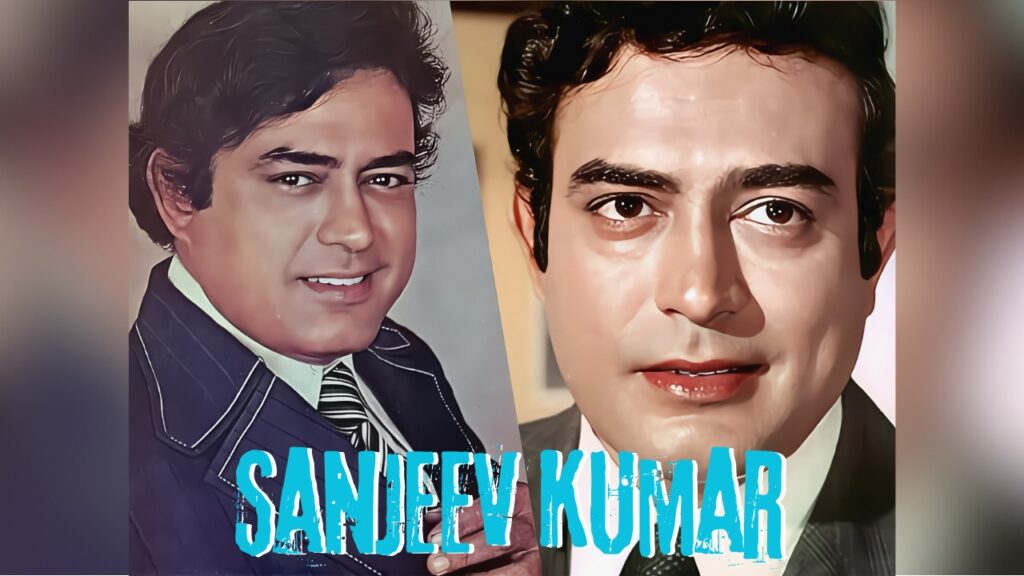In the golden age of Indian cinema, few names are remembered with enduring respect, and Sanjeev Kumar is one of them. He was not the conventional hero with a chiseled figure or elaborate dance routines; he was an actor who made the characters look alive and was the soul of every frame he occupied. From portraying a septuagenarian at the age of 22 in Aandhi to portraying a deaf-mute in Koshish, Sanjeev Kumar went against the norms and redefined greatness in cinema.
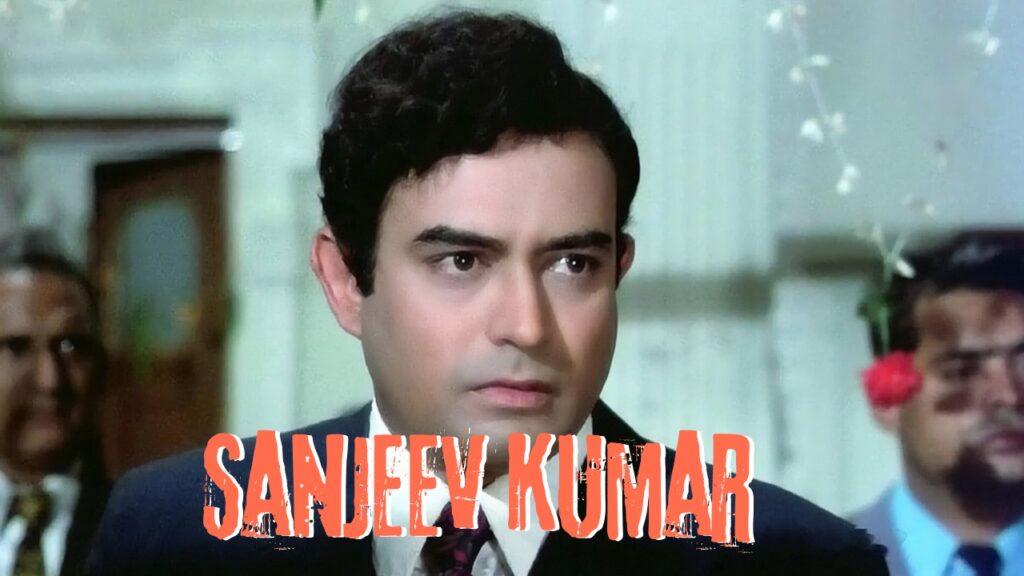
Who Was Sanjeev Kumar?
Born Harihar Jethalal Jariwala on 9 July 1938, in Surat, Gujarat, Sanjeev Kumar’s ascent to fame was far from conventional. He started his career as an actor on the stage, which introduced him to the depth of character roles. His foray into films ushered in a new wave of realism to Bollywood, a platform that was typically dominated by fantasy and melodrama.
Having graduated from the Film and Television Institute of India (FTII) and sharpened his skills at IPTA (Indian People’s Theatre Association), Kumar entered the silver screen in 1960. But it was through the film Shikar in 1968 that he entered the spotlight. With his versatility and understated charm, soon he caught the eye of the filmmakers and critics alike.
Koshish (1972): A Silent Victory
Gulzar supervised Koshish, which is still the most poignant description of a handicapped couple. Sanjeev Kumar and Jaya Bhaduri gave performances that were empathetic to the extreme. Without putting dependence on the dialogue, Kumar depicted a lifetime of feeling in looks, presenting forth the fact that silence could be articulate as well.
Aandhi (1975): Politics and Personal Suffering
In this semi-biographical political drama, Kumar portrayed the psychologically strained husband of a politician (as enacted by Suchitra Sen). The acting was mature and subdued and struck a behemoth population, particularly during a politically unsettled period.
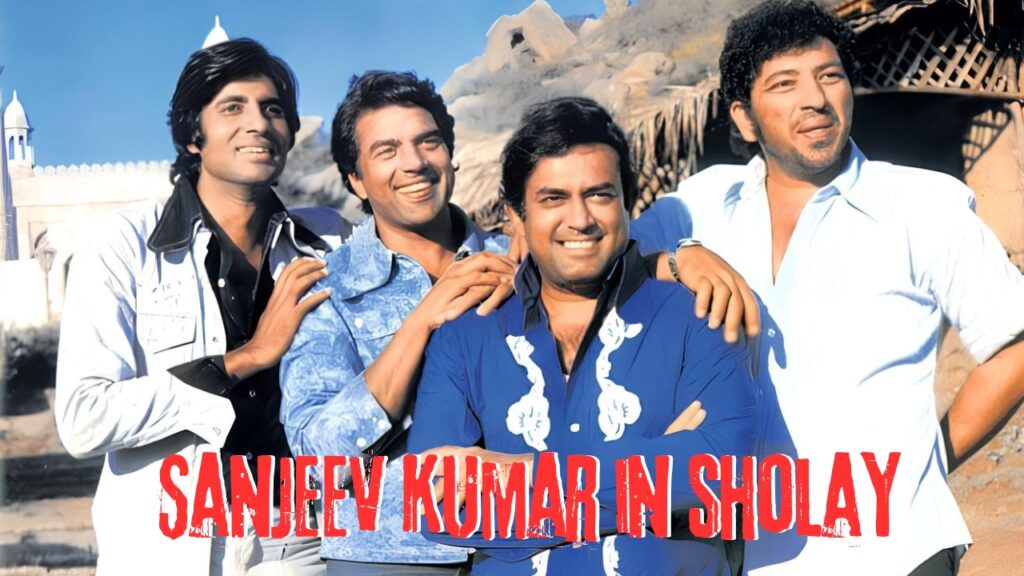
Sholay (1975): The Steely Thakur
Who can erase from memory the mythological representation of Thakur Baldev Singh in Sholay? With stoic resolve and burning eyes, Kumar gave birth to a character with no hands as one of the most commanding figures in Indian cinema history.
Sanjeev Kumar vs His Contemporaries
| Actor | Signature Style | Iconic Films | Distinct Edge of Sanjeev Kumar |
|---|---|---|---|
| Amitabh Bachchan | Angry Young Man | Zanjeer, Deewar | Kumar preferred subtle realism |
| Rajesh Khanna | Romantic Hero | Anand, Aradhana | Kumar opted for flawed characters |
| Dilip Kumar | Tragedy King | Devdas, Mughal-e-Azam | Kumar was down-to-earth and versatile |
Sanjeev Kumar did not select roles for glam as much as his contemporaries did for the most part. He did not mind playing older parts or disobedient parts, a characteristic unusual in male lead actors during his period.
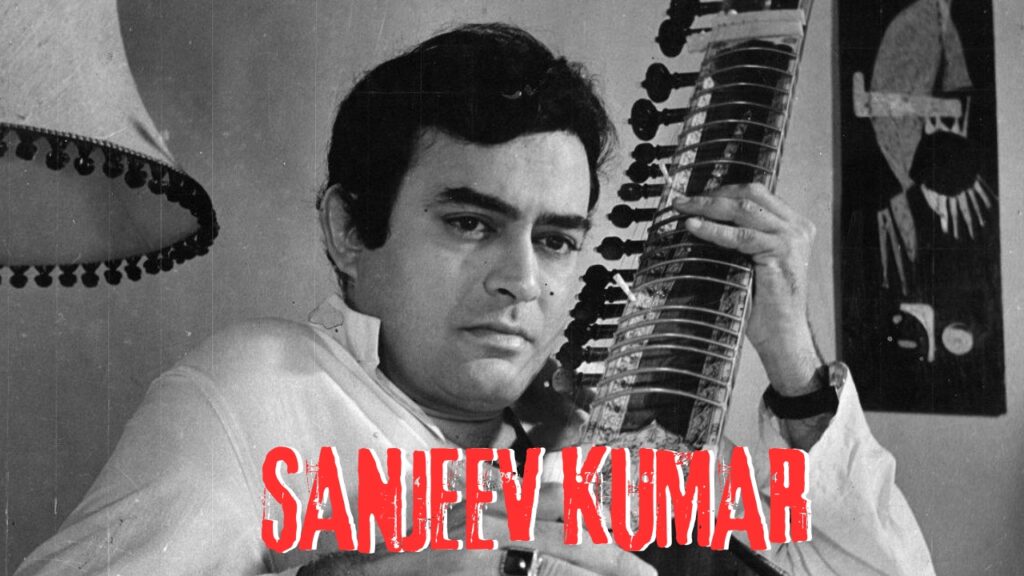
The Few Must-Knows of His Craft
1. Age Was Just a Number
He did mention, “Main budhape ke roles mein zyada comfortable hoon.” (I feel more comfortable in older roles.) From Aandhi to Avtaar, he brought aging characters to life with dignity and reality, without the luxury of makeup stunts.
2. Emotions Over Eloquence
Whether it was a tormented lover, disillusioned father, or insecure husband, Kumar’s acting always kept emotional reality paramount. He was not loud, but he was profoundly moving.
3. Theater as His Backbone
His IPTA days and stage work had a great impact on his filmmaking style. Discipline, body language, and timing on the stage also worked magic for cinema.
4. Chemistry with Collaborators
Directors such as Gulzar, Hrishikesh Mukherjee, and Basu Chatterjee brought out the best in him. His chemistry with co-stars Suchitra Sen, Jaya Bhaduri, and Moushumi Chatterjee showed a special professional chemistry.
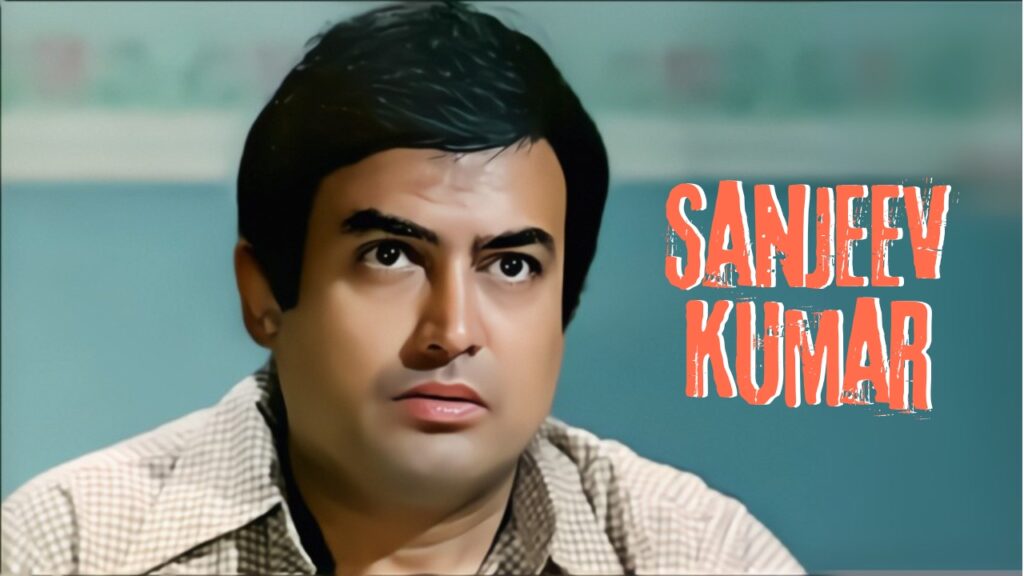
The Tragic Undercurrent
While professionally on top of the world, Kumar’s personal life was disease-ridden and miserable. He was never married in his life, and gossip regarding his heartbreak due to rejection by Hema Malini was ruling the roost. Suffering from a congenital heart condition, he died at the age of 47 in 1985, leaving behind a much greater body of work than his own age.
Why Sanjeev Kumar Still Matters
In the age of larger-than-life heroes and action movies, Sanjeev Kumar’s own legacy is a testament to the strength of understated narration. Actors like Irfan Khan and Nawazuddin Siddiqui are following in his footsteps—prioritizing content over style.
Streaming services have revived the interest in old films, and Kumar’s films are being seen by newer generations who value depth and realism. His performances age like fine wine—richer and more rewarding with every repeat visit.

Must-Watch Sanjeev Kumar Movies
- Koshish (1972)
- Aandhi (1975)
- Sholay (1975)
- Angoor (1982)
- Mausam (1975)
- Trishul (1978)
- Pati, Patni Aur Woh (1978)
Conclusion: Legacy of Timeless Storytelling
Sanjeev Kumar was not an actor; he was an emotion. His characters brought out real people—flawed, vulnerable, and fearless. Amidst a world that’s always running after glamour and hype, his movies are an anchor, reminding us of the heart of cinema.
The next time you see a movie that touches you softly instead of screamingly, remember Sanjeev Kumar—the gentleman who perfected the art of softness in performance.

